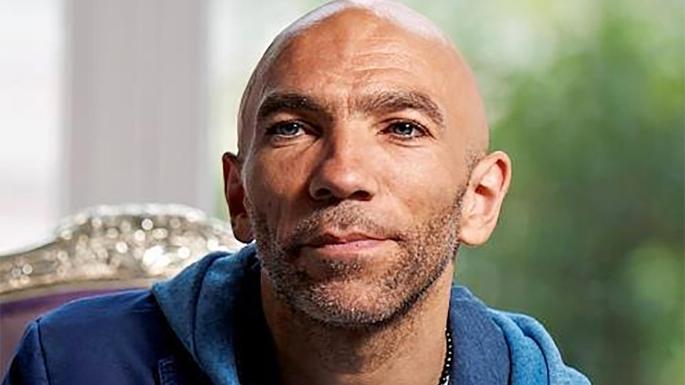White theatre director on BME funding scheme branded ‘racial imposter’
Anthony Lennon’s parents are white Irish but he identifies as ‘African born again’

A free daily email with the biggest news stories of the day – and the best features from TheWeek.com
You are now subscribed
Your newsletter sign-up was successful
A white theatre director and actor is facing criticism after being awarded public funding intended for black and minority ethnic (BME) people.
London-born Anthony Lennon identifies as “African born again” and in 2012 told an audience that “I have gone through the struggles of a black man, a black actor”, The Independent reports.
The 53-year-old claims that he was bullied as a child because people assumed he was mixed race, and that a caretaker at his school once called him a “n****r”.
The Week
Escape your echo chamber. Get the facts behind the news, plus analysis from multiple perspectives.

Sign up for The Week's Free Newsletters
From our morning news briefing to a weekly Good News Newsletter, get the best of The Week delivered directly to your inbox.
From our morning news briefing to a weekly Good News Newsletter, get the best of The Week delivered directly to your inbox.
Last year Lennon was named as one of four “theatre practitioners of colour” sharing a £400,000 grant under an Arts Council England-funded two-year trainee scheme, after leading black theatre company Talawa backed his claim that he was “mixed heritage”.
The thesp now calls himself Taharka Ekundayo and was recently an assistant director on an all-black production of Guys and Dolls by Talawa. But outraged commentators are calling him a “racial imposter” after it emerged that “he is unquestionably white”, says The Daily Telegraph.
In an interview for a BBC documentary in 1990, he stated: “My parents are white and so are their parents, and so are their parents, and so are their parents.”
Talawa this week insisted that Lennon nevertheless qualifies for the grant, with a spokesperson saying: “As an artist of mixed heritage he is not only eligible for the position, but his experience, work and achievements make him an exceptional person for the role.”
A free daily email with the biggest news stories of the day – and the best features from TheWeek.com
That view is not shared by Trevor Phillips, the former chair of the Commission for Racial Equality, who said: “Institutions are so desperate these days to show how inclusive they are on issues of self-identification that I’m afraid I saw something like this coming.
“The problem is, of course, that the people who lose out are the minorities. White liberals are so desperate to show how lovely they are to minorities that they do things that end up causing more harm.”
Habeeb Akande, a writer on race issues, said: “Many of us are becoming sick and tired of racial imposters who are commodifying blackness for their own financial gain. You cannot wear the cloak of blackness when it suits you.”
A black actor told The Sunday Times: “When I discovered his background I thought it was unfair that a white man had taken a black person’s place on a BAME scheme.”
Meanwhile, The Guardian columnist Coco Khan tweeted that Lennon was “the epitome of white entitlement”.
In response to criticism, the Arts Council said: “Talawa raised their wish to support Anthony with us. In responding we took into account the law in relation to race and ethnicity.
“This is a very unusual case and we do not think it undermines the support we provide to black and minority ethnic people within the theatre sector.”